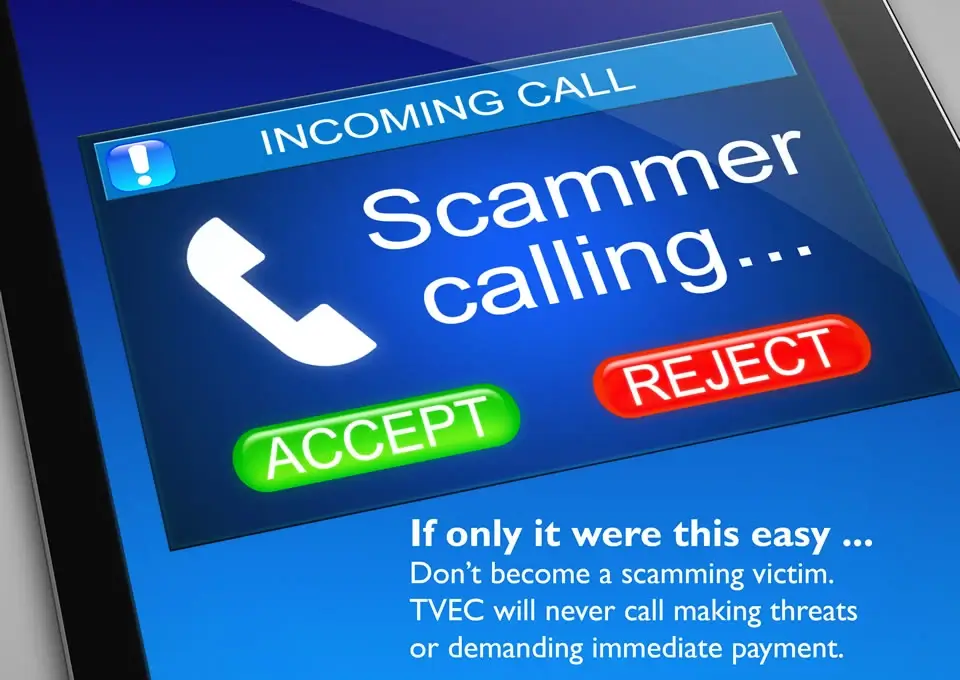Scam Awareness
At Trinity Valley Electric Cooperative, we do not make phone calls demanding immediate payment or threatening to disconnect service. If you receive a phone call like this, it could be a utility scam. Utility scams occur when a person poses as a utility company to steal personal information and empty bank accounts. These scams can happen over the phone, by text message, from in-person visits, or through email. It is important to learn the signs of utility scams to protect yourself and the ability of co-op workers to do their jobs.
Signs It's a Scam
- Calls from unofficial phone numbers or calls demanding immediate payment or action.
- Unexpected emails or emails requesting information.
- Unscheduled visits.
- No company badge or identification.
- Workers who seem rushed or insist that something be done immediately.
- Requests for unusual payment methods, like prepaid cards or bitcoin or other cryptocurremcies.
- Pop-Up Messages offering surveys or prizes.

What TVEC Does
- Send delinquent notices by mail with shut-off date.
- We submit our aged delinquent balances on closed account to ONLINE Utility which will contact by phone and letter.
What TVEC Never Does
- Call to threaten a service disconnection if payment is not made immediately.
- TVEC field employees to not take any payments.
- Ask you to pay with a prepaid card.
- Call from an out-of-state number.
- We do not use an automated system to call members regarding past due balances.
- Instruct you not to call any other TVEC numbers to make payments.
- Request cash payment at your home or business.
- Threaten a service disconnection on holidays or weekends.
- Try to sell you products or services by phone or door-to-door, including solar panels, energy audits, “important energy-saving initiatives” or more.
If you receive a questionable call, you can hang up and contact TVEC Member Services to verify any information regarding your account.

